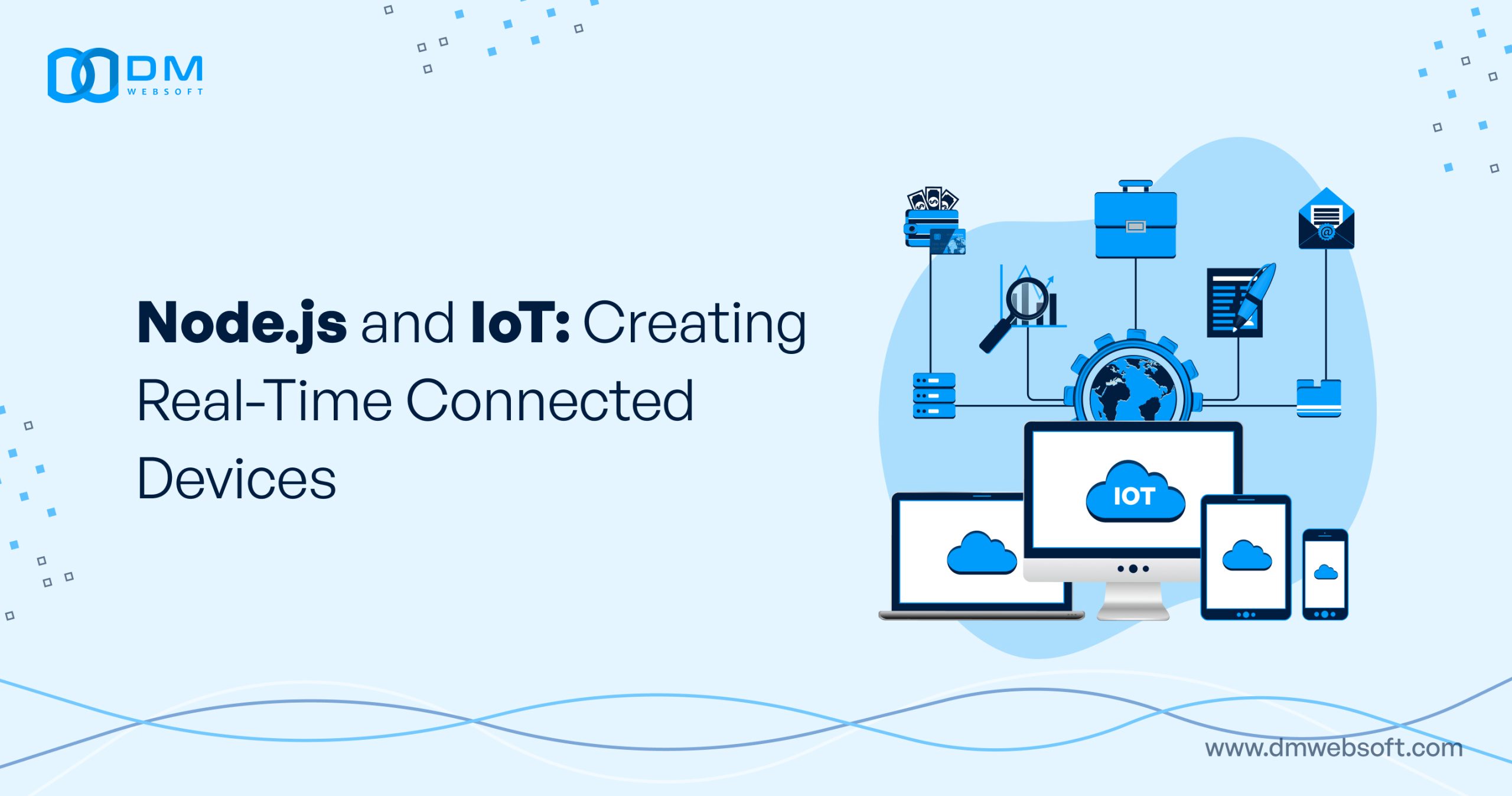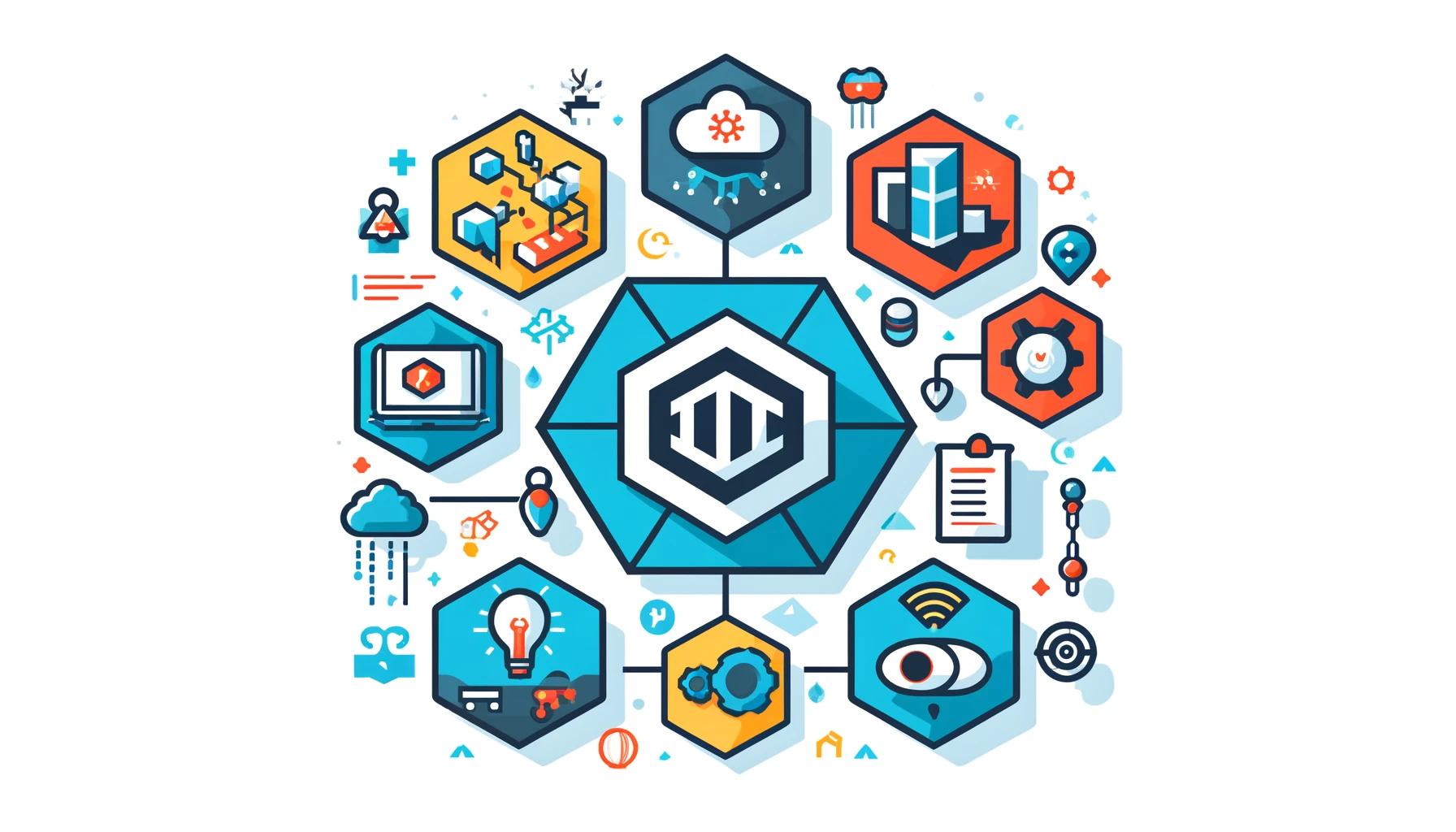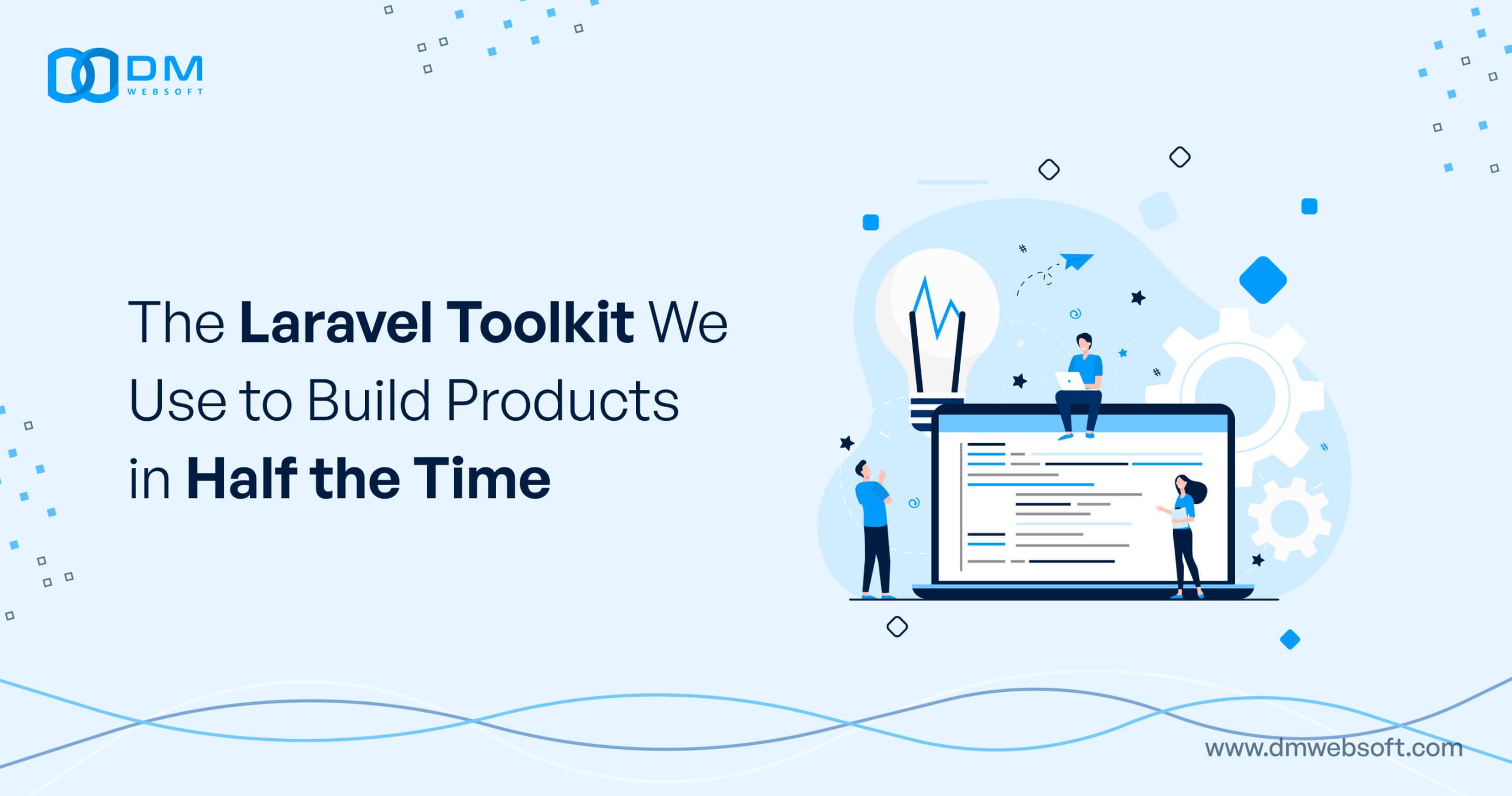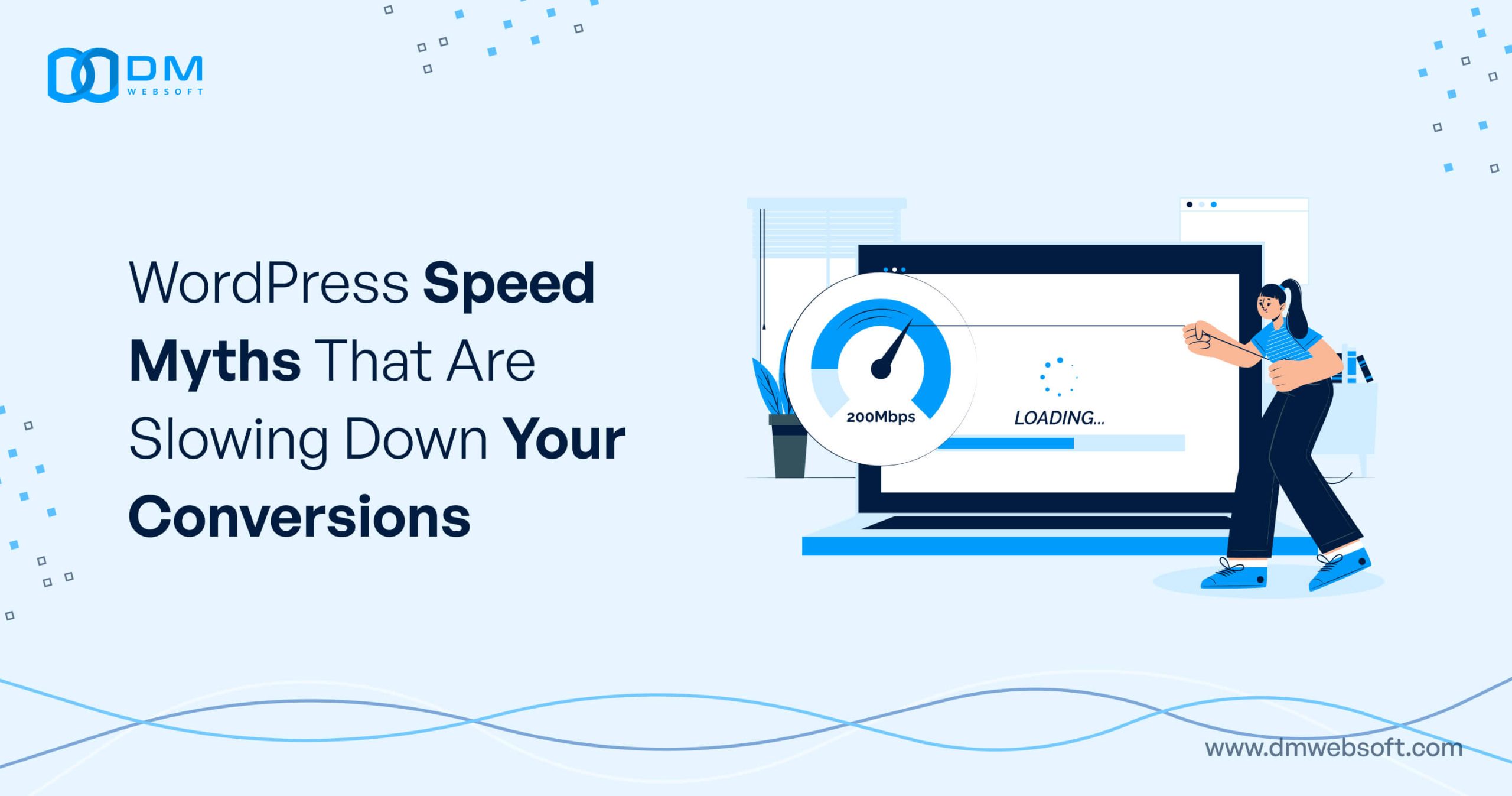DM WebSoft LLP exceeded our expectations! Their seasoned team of experts delivered a website that perfectly captures our brand essence. Their 15+ years of experience truly shine through in their exceptional web development skills.
Node.js and IoT: Creating Real-Time Connected Devices

TABLE OF CONTENT
Introduction
Practical Uses of Node.js in the IoT
Challenges and Solutions of NodeJS in IoT
Market Trends in Node.js IoT Development
How DM WebSoft LLP Can Help Businesses Implement Node.js for Their IoT Projects
Benefits of Developing IoT Apps with Node.js
Conclusion: Node.js as a Game Changer in the Development of IoT Applications
Get in Touch
Introduction
It has revolutionized the way devices talk and interact with one another today. Most of the innovation in IoT has Node.js at its core—a powerful JavaScript runtime, known for its efficiency and scalability. So, let’s now look at why and how Node.js happens to be the choice for developers working with IoT applications in order to develop real-time, robust connected devices.
Why Node.js Is the Best for IoT
Some unique advantages of Node.js that are particularly interesting for IoT applications include:
Scalability and Performance
Node.js is based on the well-known V8 JavaScript engine, which is very performant. The event-driven architecture and non-blocking I/O provide it with the qualification to handle many requests concurrently using the fewest resources.
Thus, this becomes very much significant for IoT applications where a huge number of connected devices should communicate and transmit data at the same spur of the moment. With Node.js, developers can use any number of connected devices to build scalable IoT systems that process large data very efficiently.
Lightweight and Effective
Typically, IoT devices operate with limited processing and memory resources. Node.js is extremely light in weight, thereby very handy when it comes to running on such limited environment facilities. The low memory use capability results in IoT devices that will operate without being bogged down with heavy processing demands.
Ease of Development
Powered by JavaScript at its core, Node.js makes the life of developers easier with its earlier acquaintance with the language, since JavaScript is one of the world’s most used programming languages.
Fatter development of IoT applications is hence realized. Besides, the huge npm (Node Package Manager) ecosystem supports plenty of modules and libraries that greatly ease the development process and help in implementations with complex functionalities in IoT projects.
Real-Time Capabilities
Probably one of the most relevant requirements of many applications in the Internet of Things is the real-time processing of data, which Node.js suits very well since it is inherently asynchronous. It manages to accomplish functionalities such as real-time operations in which live sensor data is sent to the dashboard or sending instant notifications through different instant messaging platforms. On the other hand, Node.js ensures that the technologies related to the Internet of Things serve as responsive and interactive.
Security features
Security is given a lot of importance while developing IoT. Some of the robust security features in Node.js contain tight encryption features on HTTPS to assure that there is safe communication between the devices and the servers, therefore keeping off avenues for unauthorized access to data and any other possible cyber threats.
This enables developers to craft a new generation of real-time, connected devices for the world of IoT that are efficient, scalable, and secure. At DM WebSoft, with our proven expertise in Node.js, we develop innovative IoT solutions that make business a reality. Our experts can help you devise and implement new, innovative IoT systems for your business that are better equipped with connectivity, harness more operational efficiency, and herald more innovation.
Practical Uses of Node.js in the IoT

Node.js is making the development of applications in the IoT for the industries dynamic—one that is quickly applied, scalable, and secure. In doing this, we now introduce how Node.js is making a real-world realization and effective use in the domain of the IoT.
Smart homes and intelligent buildings
Smart home automation is important, where Node.js is the programming tool that enables a real-time monitoring of devices within a home. For example, it will enable a smart thermostat, lighting system, and security camera to be held in a centralized system managed by Node.js.
Such a setup allows homeowners to control and monitor their home environment remotely by using mobile applications or voice assistance like Amazon Alexa or Google Home.
An example of this is a smart home system developed with Node.js, which has the capacity to observe and manage energy consumption dynamically in real time, such that heating and cooling are optimized with reference to occupancy and outside climatic conditions. This is an optimization not only for convenience but also for saving energy.
Industrial Automation
Node.js is engaging in the revolution of the industrial automation area by enabling real-time data processing and control. Real-time data processing and control in a manufacturing setup can be done using Node.js for machinery health monitoring and keeping track of key production metrics. Ultimately, this results in data-driven predictive maintenance.
This, for instance, would be in the likes of manufacturing plants, where Node.js could be applied to accumulate imputed data from the majority of sensors applied while running the machinery. The data may be analyzed in real time to predict equipment failure, which would ease preventive maintenance and save equipment downtime. Real-time monitoring also perfects the production process to drive efficiency.
Healthcare
Node.js is used in a variety of IoT applications within the health sector. This spans from wearable health devices to remote monitoring systems for patients. The applications deliver real-time health information to medical professionals to actually cause interventions and more timely, more accurate solutions for care.
For instance, a health monitoring wearable that contains data about heart rates, blood pressure, and glucose level may utilize NodeJS for streaming such data in real time to the dashboard of the healthcare provider. It thus allows the monitoring of one’s health continuously in real time by the physicians and quick intervention in case of any anomaly.
Asset Tracking
Node.js greatly benefits an asset tracking system since it natively supplies real-time data processing. These systems use IoT devices, namely BLE beacons and GPS trackers, for location and status tracking of the assets.
This can be demonstrated through a logistics company that utilizes Node.js to establish an asset tracking system in which the location of their fleet, from the point of origin to the final destination, is being monitored in real time.
Such a system can provide insight into fleet efficiency, optimize routes, and provide on-time delivery through the alerts the system would raise to the management should an asset go off-route or unexpected delays occur.
Success Stories
Asama is a micro-location system for tracing the activities and movements of employees in real time. Backed up with a smartwatch and Bluetooth beacons, it gives a manager the opportunity to optimize the workspace for higher productivity by transmitting the data through Node.js to a mobile app.
PREE is an Internet of Things application that helps to keep track of people’s belongings using BLE beacons and mobile software. Made with real-time location and a notification feature, it is developed with Node.js so that users never lose their valuables.
At DM WebSoft LLP, we leverage the capabilities of Node.js to implement the realization of advanced IoT solutions according to your business requirements.
Our team can build robust and scalable IoT applications in the smart home automation, industrial control systems, or health care monitoring domains, among others, to bring efficiency and innovation. Partner with us in bringing your IoT vision to life.
Challenges and Solutions of NodeJS in IoT

While Node.js brings most of the features on the table for IoT development, a number of challenges are there for developers to go through to make their implementation successful.
In this forthcoming section, I’ll state some frequent challenges along with their solutions so that your projects in IoT run fluidly and efficiently.
Human, Physical
Challenge: Most IoT devices have limited processing power and memory, and sometimes this affects the performance characteristics of the application development done with Node.js. It is of extreme importance that the application runs efficiently in constrained devices.
Solution:
- Efficient Coding Practices: Write lean and efficient codes in performing tasks to the minimal. Write code which makes the best use of Node.js’s asynchronous and non-blocking nature in performing tasks.
- Lean Toward Optimized Libraries: Use lightweight libraries that bring added value in order to keep the application footprint small.
- Edge Computing: It is a method of offloading some processing to edge devices or gateways that have more computing power, thus reducing the burden on resource-constrained devices.
Make it Human
Challenge: Ensuring the Security of IoT Devices and the Data They Handle. They are mostly connected, and they pass sensitive information through them; this fact makes them the center of target by cyber attackers.
Solution:
- Secure communication: All data transmission between devices and servers should be encrypted in the following way: Put strong protocols in place: For data encryption, use SSL/TLS.
- Authentication Mechanisms: Employ vigorous authentication mechanisms, such as JSON Web Tokens (JWT) and OAuth, to prove the identity of devices and thereby guarantee that only authorized devices access the network.
- Regular updates: Make sure to update the runtime of Node.js and all its dependencies against known vulnerabilities.
Scalability Issues
Challenge: With the increasing number of connected devices, the system must scale effectively and handle the growing data and communication demands.
Solution:
- Horizontal scaling: As devices continue to increase in number, add more servers or instances. The load is distributed among them; it therefore stays resilient to a spike in traffic.
- Load Balancing: You could employ some kind of load balancer to distribute request load across many servers, such that no single server would become the bottleneck.
- Cloud Services: Use cloud service providers such as AWS, Azure, or Google Cloud to host your application and interface with the infrastructure, which is scalable and integrated with services tailor-made for IoT applications.
Network latency
Challenge: This network latency causes real-time data applications to have a performance that is somewhat delayed, in which data transmission and processing require instant action.
Solution:
- Edge Computing: It processes data close to the source and adopts edge computing, thus reducing the latencies in data travel from a device to a central server.
- Efficient Protocols: Use effective communication protocols, such as MQTT. The MQTT protocol was developed to support low latency and reliable communication within IoT platforms. We, at DM WebSoft LLP, understand the peculiarities of IoT app development and are experts in overcoming the above-mentioned challenges.
We at DM WebSoft LLP use the power of Node.js to build secure, scalable, effective IoT solutions in line with your business demands. Whether you aim for resource consumption reduction, adding up security features, or just scaling your IoT infrastructure, DM WebSoft LLP has the skills and experience. Join us in making your IoT vision a reality.
Market Trends in Node.js IoT Development

The intersection of Node.js and IoT is getting a lot of traction through growth insights and innovations. Node.js has become a favorite technology in many industrial settings due to its efficiency, scalability, and real-time capabilities. In this section, we present some of the recent market trends that demonstrate how Node.js is crafting the future of IoT.
Growing Adoption of IoT
The growth of Node.js is driven by one of these primary trends, which is the proliferation of IoT devices. Whether it’s smart home devices or industrial sensors, the need for efficient real-time data processing is now more acute than ever. The event-driven architecture that’s core to Node.js makes this an ideal environment to manage the constant flow of data that these devices will need.
Example: In smart cities, Node.js manages and analyzes all data sent by sensors and devices to improve the way cities plan for the future and optimize transportation and safety.
Demand for Real-Time Processing
One important IoT trend is real-time data processing. Businesses are in need of such insights precisely at the time they make decisions, and it’s at such times that Node.js is coming to the rescue with a provided framework to create real-time data processing applications.
Example: Health service providers use Node.js to develop remote patient monitoring systems that monitor vital signs and alert health professionals if changes take place on time.
Increased Focus on Security
The security of their products is one of their concerns as the number of connected devices increases. Data transmission is secure, while devices are protected from various threats in the cyber environment. Node.js has a lot of security features, developers can hence build secure IoT applications.
Example: Industrial IoT applications are realized in Node.js in conjunction with secure communication protocols where data transfer from the sensors to central systems is well calculated. It ensures that all exchanges are encrypted to prevent unauthorized access to sensitive material.
Scalability and Cloud Integration
A simple IoT system needs to have one of the principal requirements: easy scalability. We see enterprises looking to scale out their IoT deployments and therefore wanting to be able to easily scale out with the solutions provided.
This is quite significant when using Node.js, which is easily integrated with most cloud services in order to provide easy, scalable infrastructure for developing IoT applications.
Illustrative of this would be logistics companies adopting Node.js for developing scalable asset-tracking systems—for instance, fleet monitoring in real-time based on optimized routing and on-schedule goods delivery.
At DM WebSoft LLP, we stay ahead of market trends by harnessing the power of Node.js to deliver innovative IoT solutions. Our expertise in Node.js IoT development ensures that your business benefits from real-time data processing, robust security, and scalable cloud integration. Partner with us to transform your IoT vision into a reality and stay competitive in a rapidly evolving market.
How DM WebSoft LLP Can Help Businesses Implement Node.js for Their IoT Projects

We’re a top global company at DM WebSoft LLP, considering the fact that we bring out the full potential of Node.js for your IoT project. With such understanding on our part, our team members are all experts in understanding the critical challenges and opportunities in the IoT space for your business needs. For helping your business unleash the full power of Node.js for your IoT implementations, here is how we could help:
Development of Custom IoT Solutions
Node.js provides a powerful framework that allows the development of custom IoT solutions. We can design and craft applications for smart home systems, industrial automation platforms, and healthcare monitoring devices, matched with exact requirements.
For example, we recently implemented a custom smart home automation system in Node.js to keep the homeowners aware of and in control of their lighting, security, and climate systems from anywhere.
Seamless Integration into Existing Systems
The integration of new IoT devices within an existing system is a bottleneck in this process. We can easily integrate new IoT elaborations into your ecosystem of the system with our experience in Node.js so that data flows smoothly and remains interoperable.
Example: We integrated asset tracking devices installed on logistic company vehicles with a fleet management system for already existing IoT. This resulted in improved route optimization and timely deliveries of goods.
Real-time Data Processing
With real-time data processing, Node.js is perfectly applied to IoT applications which need to gain insight and act on them instantly. We help businesses implement real-time data analytics for quick, informed decision-making.
Instance: In an industrial real-time setting of observing machinery, we carried out on-the-run analysis of sensor data using Node.js for proactive maintenance—keeping it downtime-free.
Security Implementation
Security is a huge concern in IoT. The authentication, robust encryption, and other security measures followed in your IoT solutions developed by our team are implemented best practices in Node.js.
Example: We created a secure healthcare IoT application that uses Node.js to ensure the safety of patients through encrypted information and authentication of devices sending communication data to comply with data protection laws.
Scalable Cloud Integration
Scalability is one of the most important criteria for the IoT ecosystem. We scale your IoT solution according to the needs of your business by optimizing the use of AWS, Azure, and Google Cloud.
Example: We developed scalable IoT for an agro company using Node.js and AWS to enable monitoring of soil conditions and crop health in real-time from multiple company locations.
Partnering with DM WebSoft LLP allows you to access a team of well-experienced professionals dedicated to delivering state-of-the-art solutions in the realm of IoT and Node.js.
Associated business establishments forge ahead of their competitors through our skills in developing efficient, secure, and reliable IoT deployments of the latest technologies. Contact us today to show you the possibilities and actually start capturing your vision of IoT.
Benefits of Developing IoT Apps with Node.js
This is what makes Node.js an ideal choice for any IoT project whereby applications benefit from both scalability and security. Now that businesses and industries are finally implementing their IoT solutions, the benefits of Node.js cannot be more evident. Key insights from the following sections better position Node.js as an ideal choice for IoT development when it comes to developing real-time connected devices.
Increased Efficiency
Node.js is architected in a way that it is able to manage many tasks concurrently without blocking the execution of these tasks. The Event-Driven, non-blocking architecture facilitates it for the execution of many tasks at a single time, and it proves to be largely beneficial for the IoT applications.
Where it is typical to deal with thousands of concurrent connections and millions of data flows, it mainly manages such tasks toward the proper operation of IoT systems and prompt response for the input of the data process.
For instance, consider a smart irrigation system developed using Node.js. It keeps checking the moisture in the soil, states on water outflow, and adjusts its schedule according to weather forecasts in real time. The results will yield optimized water use, higher crop yield, and proof of how good Node.js is in managing complicated IoT activities.
Enhanced Security
Security is a major concern in the IoT landscape because the devices are mostly connected to the internet and deal with sensitive information. Node.js provides or supports such security characteristics that could help protect strong systems against cyber threats through various ways.
Some ways include secure forms of authentication, communication methods encrypted at both ends, the constant updating of IoT devices, and the assurance of data processed, among others.
For example, in a healthcare service for the Internet of Things, Node.js can be set up to secure the patient data flowing from the wearable health monitors to the healthcare providers so that sensitive health information is kept safe, and the feature of HTTPS secures the data in a secure way, and JWT authenticates it.
Scalability
One of the features that makes Node.js outstanding is its capability of scaling application. Certainly, the deployment of IoT solutions is growing, and the demand for scalable applications is high. Node.js addresses scaling issues via horizontal scaling, which means that developers can increase the number of servers with the increase in traffic and data volume without impacting performance.
Like a logistics firm, for instance, that needs to keep track of thousands of delivery vehicles and can use Node.js to scale an asset tracking system seamlessly for a cloud environment such as that of AWS or Azure’s integration.
Thus, the system is able to handle the big data arriving from a very big number of different IoT devices; tracking is always executed in real time, providing optimized fleet management.
Real-Time Data Processing
Real-time processing of data is very important for IoT applications, because the resulting action that has to be taken is based on immediate data input. This is where Node.js is quite powerful and can enable a developer to write applications that process data as it streams in, with time-appropriate responses and timely decision-making.
Further, as the equipment is remotely monitored by the industrial IoT factory automation system, using Node.js, it can identify an anomaly in the appearance in real time and issue maintenance alerts well before any probable breakdowns may occur. By this means, it averts expensive downtimes and further improves upon the operational efficiency.
Indirect Sales Pitch for DM WebSoft LLP
DM WebSoft LLP leverages all the powerful capabilities of Node.js to serve you with resultant high-performance, secure, and scalable IoT solutions in line with your needs. Our team of experts remains committed to helping you tirelessly achieve your IoT goals with the provision of efficient real-time data processing, robust securities implementations, and seamless scalability. Make your IoT vision real in partnership with us, and be ahead of the competition in this fast-growing market.
Final Thoughts
The integration of Node.js into the development of an IoT solution completely changes the playing field. Continuous data processing, improved security, and seamless scalability—all of that makes Node.js an inherent part of the indispensable, modern IoT arsenal. Innovating with business in IoT solutions, there will be a need to make use of the strengths of Node.js to remain competitive and drive creativity. With these outcomes known and understood, businesses can leverage the full potential of their IoT applications.
At DM WebSoft LLP, our commitment is to make available the best of advice you will need in order to succeed through your IoT project. So, reach out to us today to learn how we can help you leverage Node.js in your next IoT endeavor.
Conclusion: Node.js as a Game Changer in the Development of IoT Applications

As established by this article itself, Node.js has come out as an extremely strong tool in the field of IoT development for applications. These unique features, including scalability, efficiency, real-time capabilities, and solid security, make this tool excellent for innovative IoT app solutions. Below we summarize the most important points and underline the game-changing potential of Node.js in the IoT landscape.
Key Takeaways
- Scalability and Performance: Because of its non-blocking and event-driven nature, Node.js works really well under heavy loads with a lot of concurrent connections. It integrates well with IoT applications in which multiple devices will communicate and transmit data at the same time.
- Lightweight and Effective: Being lightweight, Node.js functions well on low-resource-constrained devices with much simplicity in ensuring maximal performance without exerting much pressure on the device’s power and memory.
- Ease of Development: Using some of the really popular programming languages, like JavaScript, the developer gets used to the platform’s libraries and functions to bring out the best in developing and implementing the applications. Node.js has a big ecosystem of npm packages, which hugely simplifies the development process.
- Real-Time Capabilities: The asynchronicity of Node.js will make a real good fit to ensure effective real-time data processing for live monitoring and instant notification systems.
- Robust Security: With features like HTTPS for communication encryption and JWT for secure authentication processes, Node.js abates the critical security concerns in IoT development.
- Market Trends: Demand for real-time data processing, strong security, and scalable solutions is increasing the adoption of Node.js in the Internet of Things. Now, from smart homes to industrial automation, businesses can do more while using Node.js to really increase the operational capacity of their operations.
Indirect Sales Pitch for DM WebSoft LLP
At DM WebSoft LLP, we fully utilize the exceptional features of Node.js to develop cutting-edge Internet of Things solutions. Our team has years of experience and is fully accomplished with building applications that are efficient, safe, and scalable while adequately addressing business needs. With DM WebSoft LLP, you shall have the chance to be competitive and help bring in innovative change amidst the industry with a little bit of help from our team. Contact us today to transform your IoT vision into reality.
Final Thoughts
Transforming into a groundbreaker for crafting a revolution on how to create and manage IoT devices is the combination of Node.js into IoT development. With its enormous capability in real-time data processing, it is assured that Node.js will take a huge part in the future of IoT. Knowing how more industries come to finally realize the benefits of technology, one can only imagine the kind of innovative applications being developed for rendering connectivity more efficient.
By following such trends and realizing their potential, businesses can meet the demand of today and set a foundation for future advancement in IoT. DM WebSoft LLP ensures that it helps you navigate through these exciting landscapes successfully in your IoT project.
Node.js is suitable for IoT applications due to its non-blocking, event-driven architecture, which allows it to handle numerous simultaneous connections efficiently.
Node.js enhances security in IoT projects by offering robust authentication mechanisms like JWT (JSON Web Tokens) and OAuth
Yes, Node.js can handle large-scale IoT deployments effectively. It supports horizontal scaling, which allows developers to add more servers or instances as needed.
These applications leverage Node.js’s real-time data processing, scalability, and security features to improve efficiency and effectiveness.
DM WebSoft LLP specializes in developing custom IoT solutions using Node.js. Our services include designing efficient, scalable, and secure IoT applications, integrating IoT devices with existing systems, providing real-time data processing capabilities, and ensuring robust security implementations.
Get Started Now !
What’s the Process ?
Request a Call
Consultation Meeting
Crafting a Tailored Proposal
Get Started Now !
Real Stories, Real Results. Discover What Our Clients Say

Working with DM WebSoft LLP was a game-changer for our business. Their technical prowess and innovative solutions transformed our online presence. A highly recommended web development agency with a stellar track record.

We are thrilled with the results DM WebSoft LLP delivered. Their deep understanding of web development coupled with years of expertise ensured a seamless and visually stunning website. True professionals!

In a digital age where first impressions matter, DM WebSoft LLP crafted a website that speaks volumes. The team’s attention to detail and commitment to quality set them apart. Thank you for making our vision a reality.

DM WebSoft LLP’s team demonstrated unparalleled expertise. Their ability to navigate complex technical challenges with ease is truly commendable. Choosing them for our web development needs was the best decision.

Exceptional service, unmatched skills! DM WebSoft LLP stands out as a leading web development agency. Their collaborative approach and commitment to excellence make them our go-to partner for all things web-related.

DM WebSoft LLP turned our ideas into a digital masterpiece. The seamless communication and timely delivery of our project showcased their professionalism. Highly impressed with the level of creativity and skill.

Our experience with DM WebSoft LLP was nothing short of amazing. From concept to execution, their team provided top-notch web development services. A reliable partner for businesses looking to elevate their online presence.

DM WebSoft LLP’s team of tech experts is second to none. Their wealth of experience reflects in the quality of their work. Our website not only meets but exceeds industry standards, thanks to their dedication.

Choosing DM WebSoft LLP was the best investment for our web development needs. Their team’s proficiency, coupled with a customer-centric approach, made the entire process smooth and enjoyable. A pleasure to work with!





